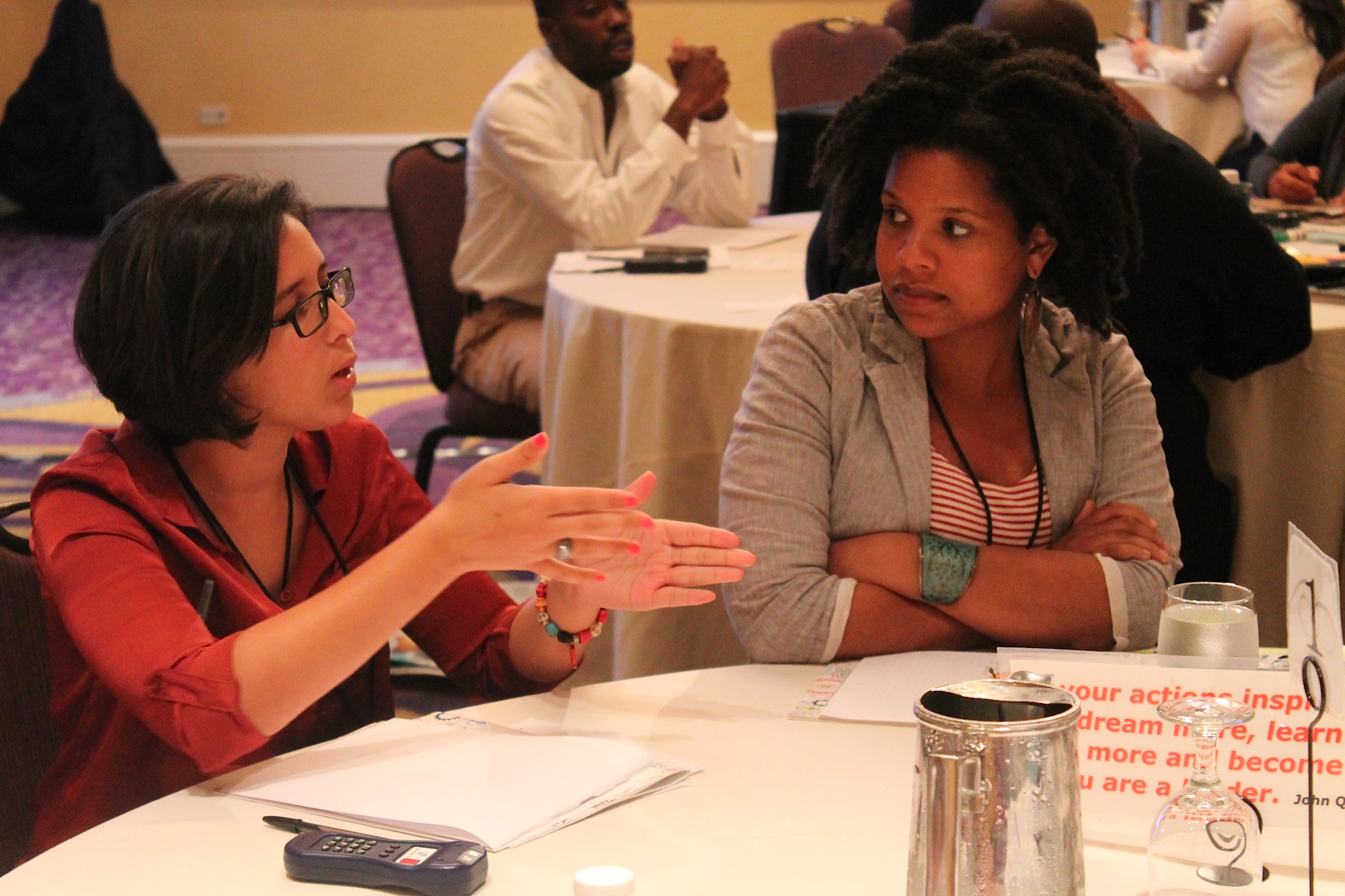
Bringing millennial-led civic engagement to Charlotte
Knight Foundation supports Mobilize.org to help bring community-based, millennial-led engagement efforts to five communities. Over the weekend participants gathered in Charlotte for Mobilize.org’s Millennial Civic Engagement Summit to discuss the challenges young people face in engaging in civic issues. As part of the summit’s award competition, participants proposed solutions to those challenges. The following was written by Mobilize.org staff.
There’s only one word to describe the energy in the room during the project presentations at the Millennial Civic Engagement Summit this weekend: Electric. Presenters made impassioned pitches for their ideas, eliciting enthusiastic applause, laughter, shouts of encouragement and, in some cases, tears, from the summit audience.
“Feel like I’m in a room full of super heroes!!!” tweeted participant @Tice1Mic.
The top five project ideas, proposed and voted on via by summit participants, won a share of $25,000 and a year of expert support from Mobilize.org to implement the projects on campus, in communities, or online. Ideas were judged on potential social impact, creativity and innovation, sustainability, and the use of new and social media.
Project proposals ranged from a national initiative to have trains filled with civic-minded millennials travel across America, holding whistle-stop trainings in communities along the way, to a center in Raleigh that activates volunteers to help causes in the local community.
The project with the highest score at the summit was The Artist Spring, which aims to use the arts as a means of activating people in their communities. Hannah Hasan, one of the project co-creators, began her proposal with an impassioned spoken word poem.
“Moved to tears listening to my peers share their ideas at #MCESummit,” tweeted @Hmass12, another summit participant, during Hasan’s performance.
The five winning projects, in order of highest scores received, are:
· The Artist Spring (North Carolina): This project will encourage all types of performance artists to utilize their medium to make a difference. First, we will a have website that would allow artists to upload videos, submit blogs and discuss the arts and civic engagement. This will be a social network that encourages peaceful, meaningful change. Locally, we will plan a fun stage show where various artists will perform for their family, friends, and neighbors about topics that encourage voting and civic engagement. We also will have canvassers there to register voters, and provide information about voting and future programs and opportunities to stay involved.
· Activate Good (North Carolina): Less than 1 in 4 citizens in Raleigh volunteer. The idea is to help transform Raleigh, N.C., into an engaged volunteer network using our innovative online platform as the basis of our efforts. The beta version of our online platform (called the “Volunteer Community”) launched in 2011, but due to limited resources we have not yet been able to develop the platform to its full potential. In building the next phase of the Volunteer Community (Volunteer Community 2.0), we’ll make it easy and fun for citizens to act as “volunteer ambassadors” and recruit friends, coworkers and neighbors to get involved. In doing so, the Activate Good team aims to make volunteerism “viral,” engaging 25,000+ Raleigh citizens by 2017.
· The Co.Space (Pennsylvania): The co.space is a program where university students and experienced change-makers live together for two years. The purpose of the project is to grow and nurture future world-changers. Through the program, students are given opportunities to apply sustainability innovation and social entrepreneurship to local community projects and global internships. The co.space is particularly important to the millennial generation because more and more young people are passionate about becoming a global changemaker but are unsure of where to start. The co.space is designed to create an environment where the barriers to taking those first steps are removed.
· Know Your Vote (Florida): The idea is to make a fun, stylish mobile app that can enable users to quickly become familiar with a topic, test their knowledge of political trivia and current events, and even contribute content that’s relevant locally. In addition, one of the goals of this project is to diligently document the application development process and share it, for free, as a contribution to the greater good of common knowledge, which could inspire people to use the code to create their own versions of the app, or simply teach someone a useful skill (mobile app development).
· Service and Youth (Florida): The idea is to implement service learning and social sciences throughout primary and secondary education. We believe that by combining service learning with an education that promotes learning about ourselves and others (e.g. civics, psychology, sociology), students will have a higher tendency to care about one another. If students care for each other, then they will have a higher chance of being civically engaged because they will want to make a positive difference in each other’s lives.
All of the MCE Summit winners were semi-finalists that had emerged from a round of earlier online voting sponsored by GOOD/Maker. More than 1,000 people voted on the their favorite projects during that round of the competition.
Congratulations to everyone who participated in the summit and to all of the competition winners. Here at Mobilize.org, we couldn’t agree more with participant Molly Ryan, who tweeted on her way home from the summit, “Sad to be leaving all my great new friends from @mob_org‘s #MCESummit – in the words of “Jay Peso”: Forget the sky there is no limit.”
Recent Content
-
Communitiesarticle ·
-
Communitiesarticle ·
-
Communitiesarticle ·


